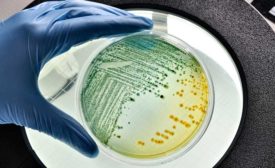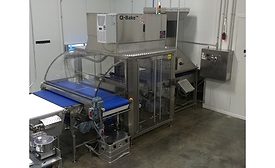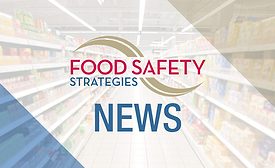Home » Keywords: » food safety
Items Tagged with 'food safety'
ARTICLES
Rapid Testing Methods—Still a Necessary Part of Food Safety?
Due to the well-known risks of working with pathogens in an in-plant food laboratory, there has been a dramatic shift to outsourcing for pathogen samples
December 12, 2023
Wisconsin dairy groups launch Dairy Food Safety Alliance
The first meeting is set for Oct. 8, 2018.
August 17, 2018
EVENTS
Webinar
4/30/24 to 4/30/25
Contact: Vania Halabou
Ahead of the Curve: Managing Global Pesticide Maximum Residue Levels
Webinar
5/16/24 to 5/16/25
Contact: Vania Halabou
How to Achieve Excellence in Food Safety Business Leadership
Webinar
6/12/24 to 6/12/25
Contact: Vania Halabou
Air Treatment for Improving Food Safety and Gaining Business Advantage
Webinar
7/25/24 to 7/25/25
Contact: Vania Halabou
How Rapid Development of Technology Has Revolutionized Food Safety
Webinar
8/29/24 to 8/29/25
Contact: Vania Halabou
Understanding and Addressing Biofilm Communities and Behavior in the Food Plant
Webinar
9/10/24 to 9/10/25
Contact: Vania Halabou
Climate Change: Managing the Risk Impact on the Food Supply Chain
Webinar
9/19/24 to 9/19/25
Contact: Vania Halabou
Selling Food Safety to Top Management: Strategies for Success
Webinar
9/24/24 to 9/24/25
Contact: Vania Halabou
Avoid the Recalls: How to Maintain Brand Reputation and Drive Company-Wide Compliance
Webinar
10/1/24 to 10/1/25
Contact: Vania Halabou
Advances in Food Decontamination Technology: A New Era of Efficiency and Effectiveness
Webinar
10/17/24 to 10/17/25
Contact: Vania Halabou
Understanding Foreign Material Inspection Inside and Out
Never miss the latest news and trends driving the food safety industry
eNewsletter | Website | eMagazine
JOIN TODAY!Copyright ©2025. All Rights Reserved BNP Media.
Design, CMS, Hosting & Web Development :: ePublishing












